The History Lessons of Straub and Huillet
Programmed by: Avivit Ashman and Johsua Wagner
Coming to filmmaking late in their lives, Danièle Huillet and Jean-Marie Straub gave a new, radical vocabulary to midcentury anxiety and revolutionary spirit. Straub-Huillet created an atmosphere through which a pan-European vision of film emerged: adapted askew, as if at an angle, and unconstrained by a single language or source text. Fiercely attached to their protean material worlds, Straub-Huillet reached into the depths of anarchist and leftist thinking, mocking the imperialist capitalist ethic of their work as much as they played alongside it. They strove for a cinema that is “a part of the people,” asking the viewer to become an active collaborator rather than passive spectator. Their films, at times austere, are also hopeful, lyrical expressions of resistance, the importance of memory, the rhythms of landscape, and the dialectics of love.
In Straub’s own words, “what is represented [is] history, topography, geography, geology, light, lights, wind and clouds, land (worked and transformed by men), traces – erased or still visible – and sky (lots of sky).” These films are dictionaries of their time, containing a trace and a message when they are viewed in succession, distorting as much as they reveal in every frame. They are political acts, rejecting film as entertainment to encourage critical reflection on language, power, and space.
Machorka-Muff / Not Reconciled / The Bridegroom, The Actress, and The Pimp (1963 / 1965 / 1968)
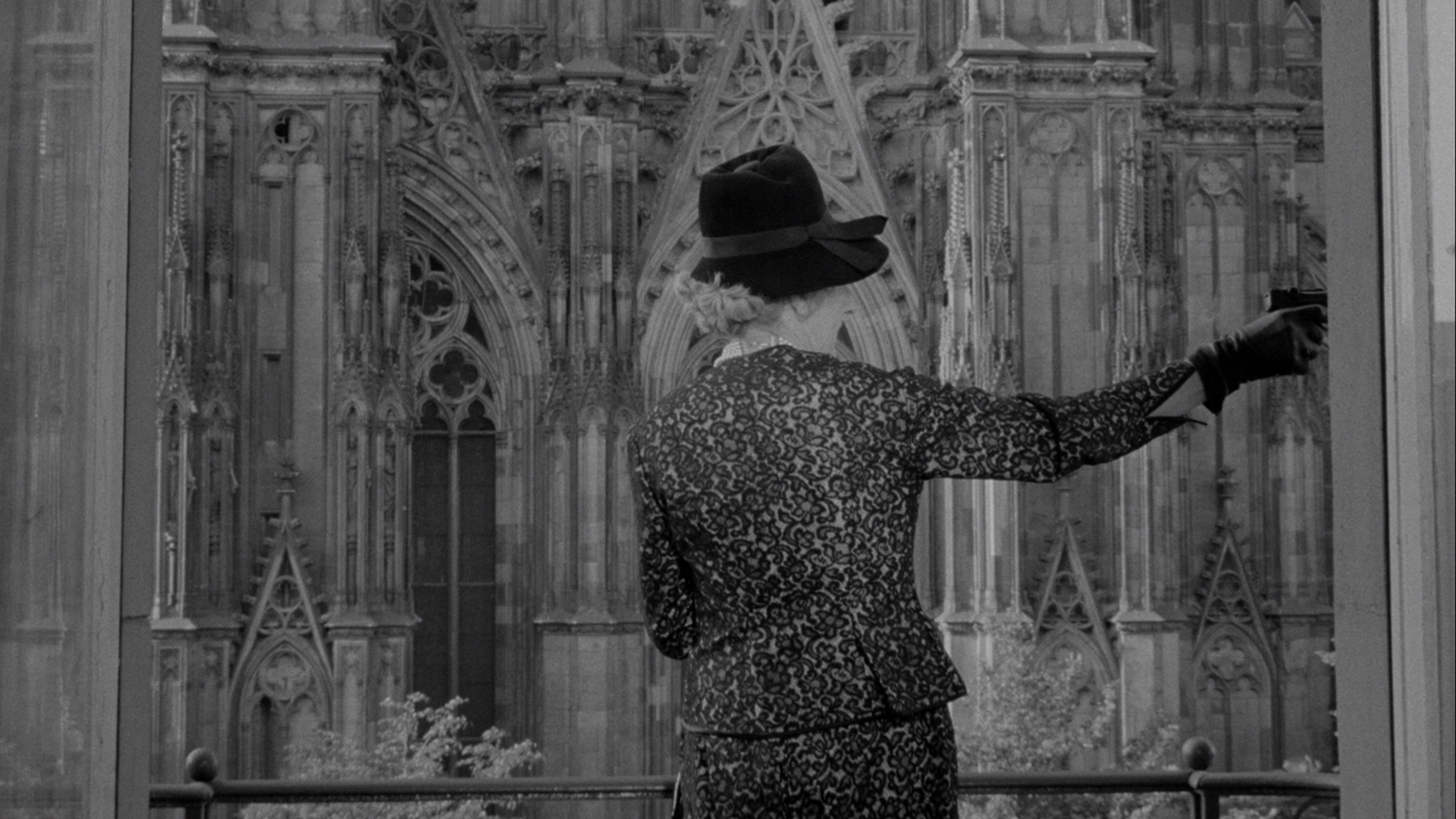
Danièle Huillet, Jean-Marie Straub · 18m / 55m / 23m · 35mm / 35mm / 35mm
Three shorts that splice, simplify, edit, and otherwise distill their source texts. Whether a satire on re-armament processes, the fragmentation and speed of Böll’s Billiards at Half-Past Nine, or the juxtaposition of three distinct narratives, these films usher audiences into the cramped and sacred space of the camera.
Wednesday, March 26 7pm · Sunday, March 30 4pm
The Chronicle of Anna Magdalena Bach (1968)
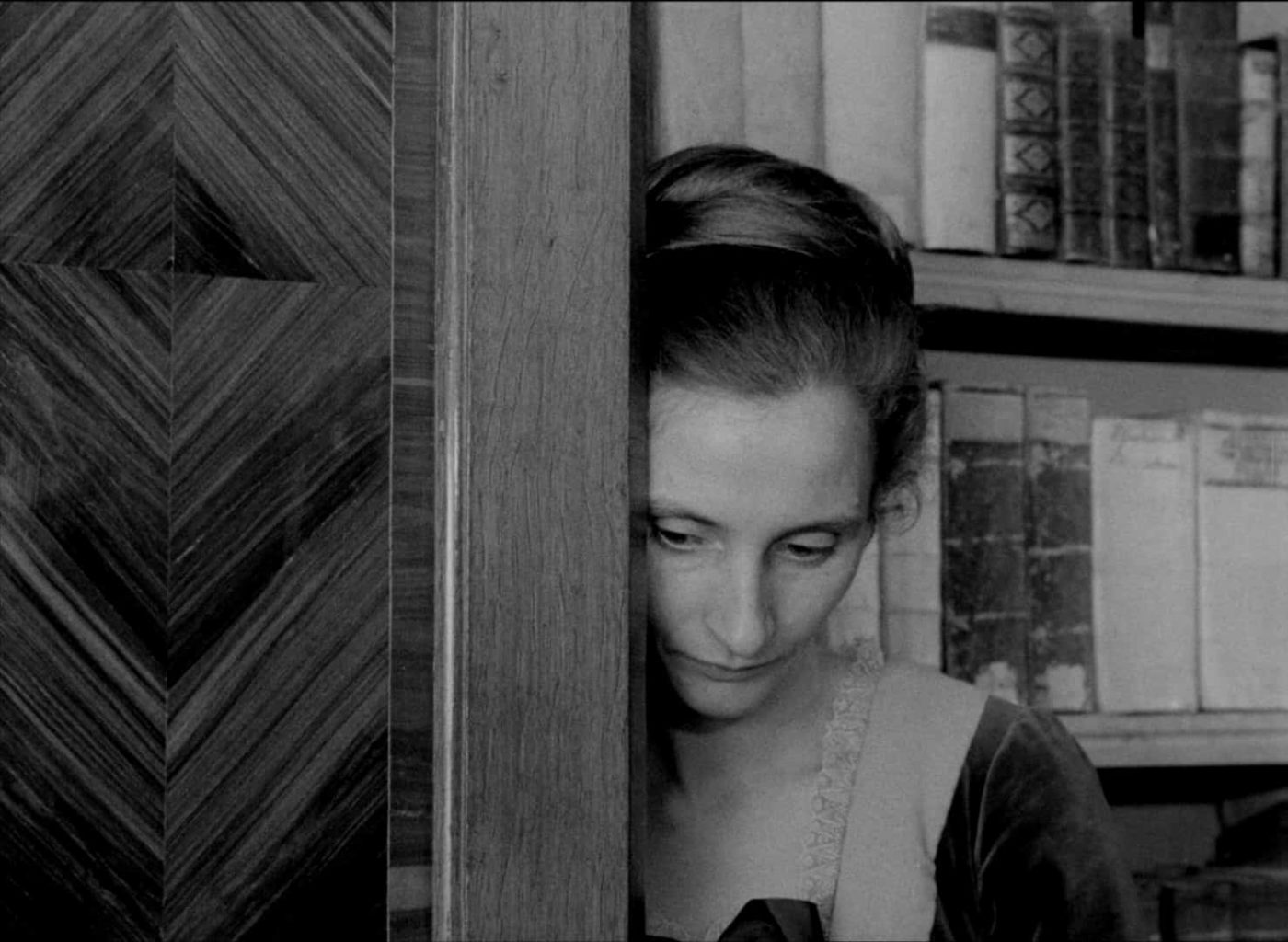
Danièle Huillet, Jean-Marie Straub · 94m · DCP
What might a popular culture of the proletariat sound like? Certainly not like this. Echoing the role of Anna Magdalena Bach, Straub-Huillet stage the material production of Bach’s scores as well as their aesthetic production on the symphony stage. Lacking archival recordings, all that exist are modern interpretations by contemporary musicians, mirroring the adaptive work of the filmmakers.
Wednesday, April 2 7pm
Othon (1970)
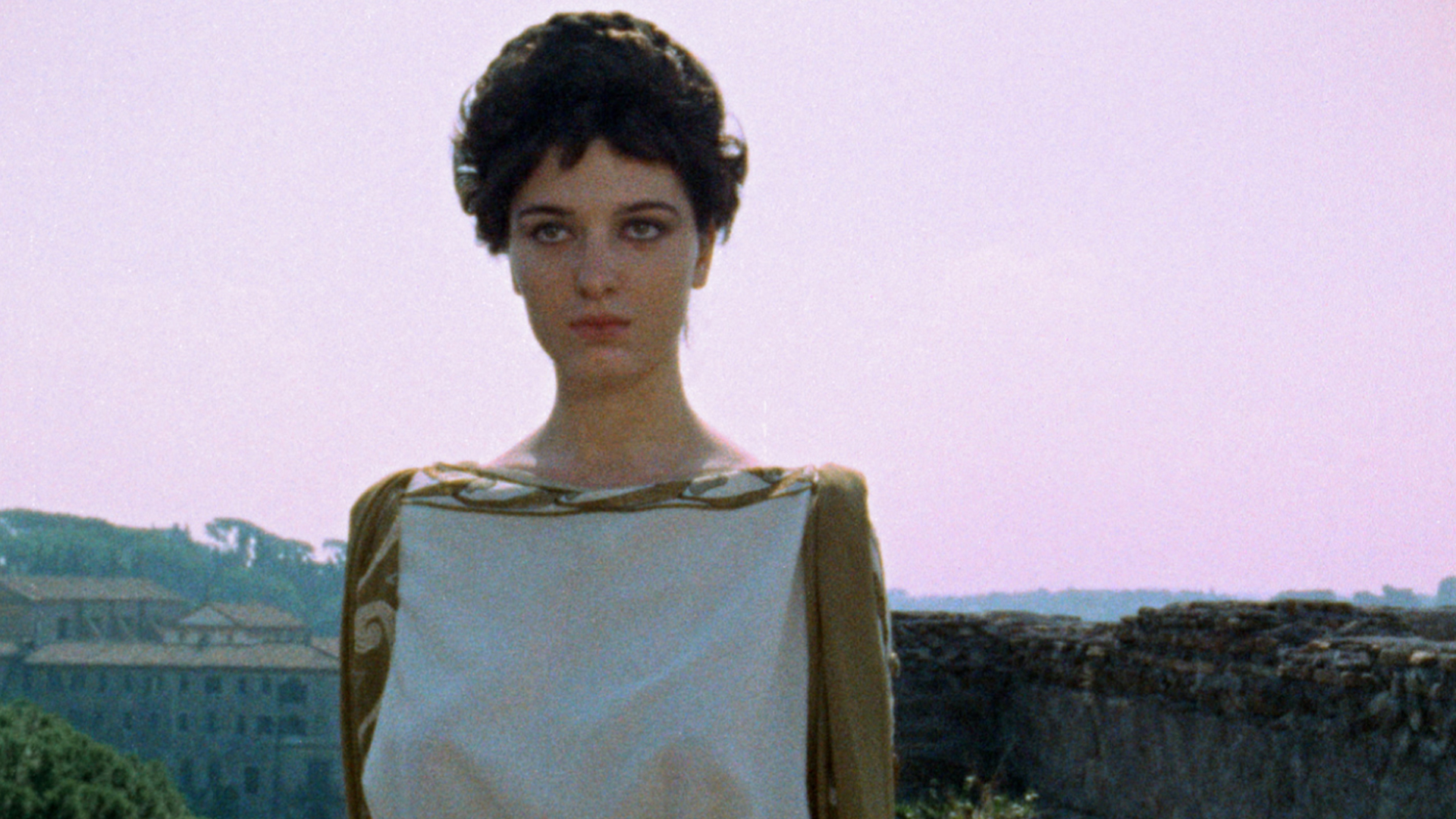
Danièle Huillet, Jean-Marie Straub · 88m · DCP
Recasting a 16th century Corneille setting of a Tacitus anecdote, Othon merges landscape, timescape, and imagescape. Glimpses of 1970s cars are interposed in this early modern text in which the countryside becomes transformed into a sci-fi realm not our own and, in the words of critic Serge Daney, “the most naked sensations serve as [the last] compass.”
Wednesday, April 9 7pm
History Lessons (1972)
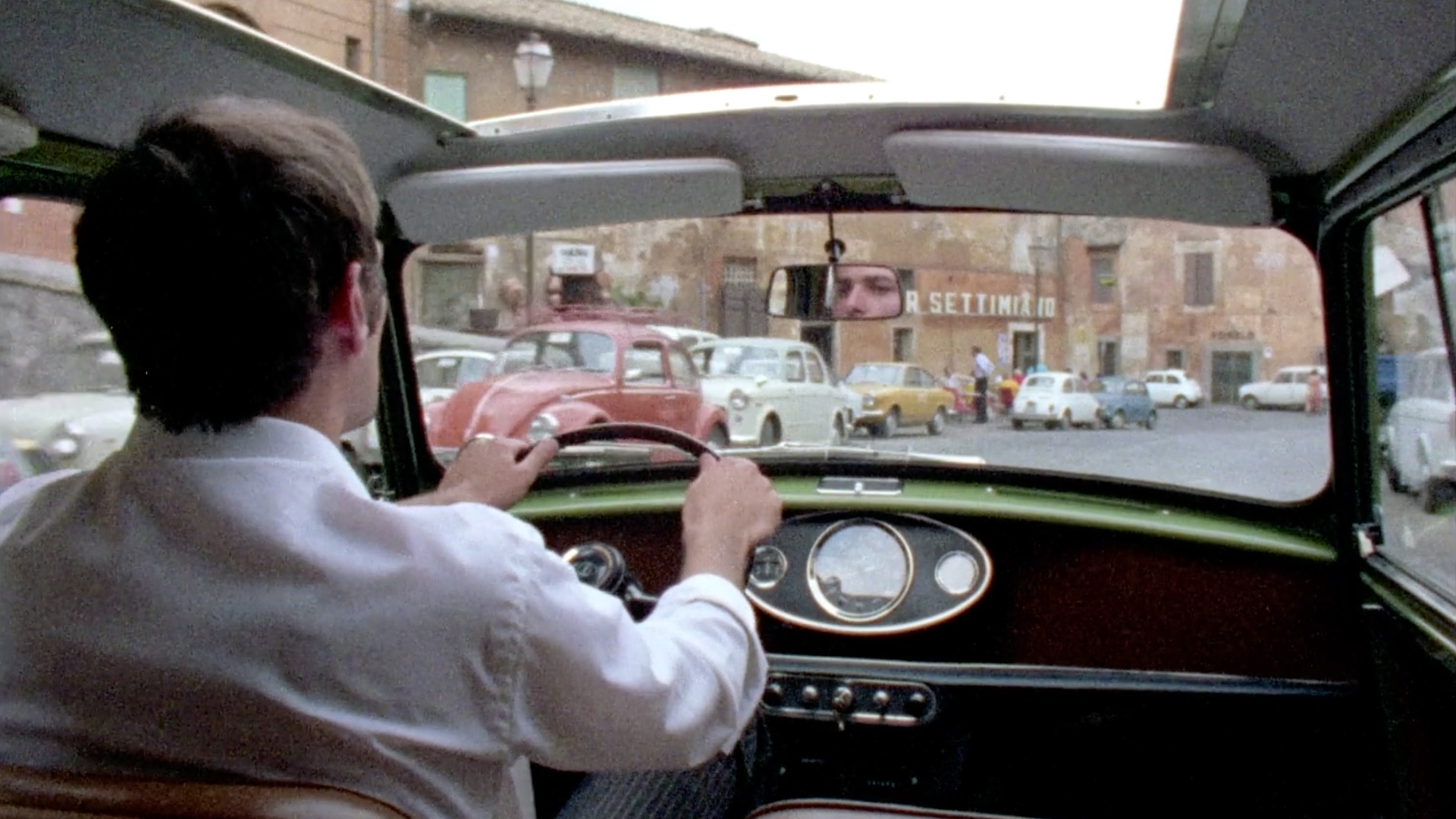
Danièle Huillet, Jean-Marie Straub · 85m · DCP
Ancient Romans give modern city-dwellers an education on power, time, and war in this adaptation of Brecht’s unfinished novel The Business Affairs of Mr Julius Caesar. History Lessons shows the political machinations of a Rome on the verge of dictatorship, proposing a more materialist revision of history that brings the city’s past into the present and vice versa.
Wednesday, April 16 7pm
Every Revolution is a Throw of the Dice / From the Cloud to the Resistance (1977 / 1979)
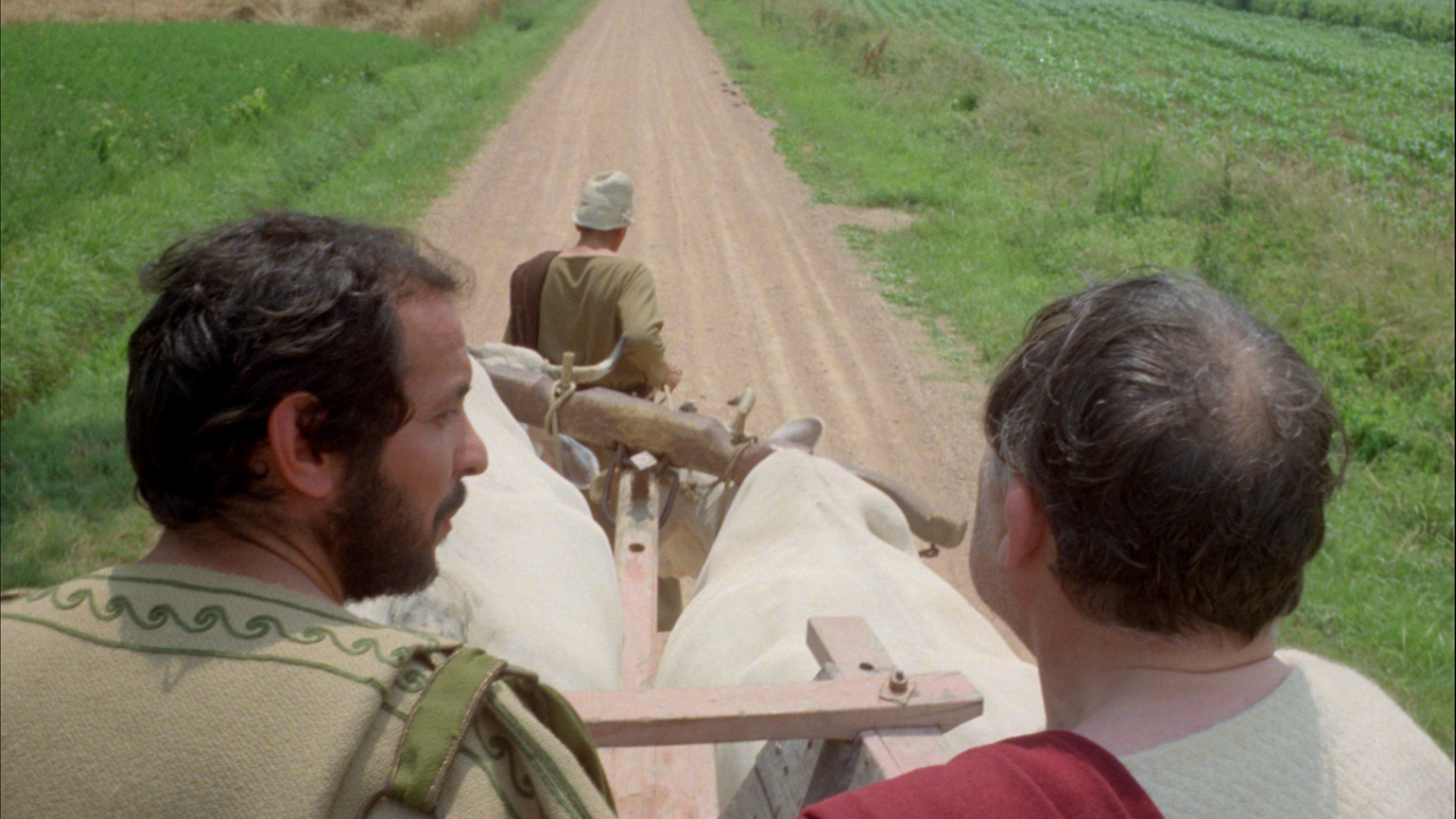
Danièle Huillet, Jean-Marie Straub · 11m / 105m · 35mm / DCP
Space and time exist only to be dynamited in this film based on two texts by Cesare Pavese. Gods return to Earth and a man returns to his village as Straub-Huillet bridge war in the heavens and material human struggles — the clouds and the resistance. Preceded by Every Revolution Is a Throw of the Dice, an ode to Mallarmé and to the fallen revolutionaries of the Paris Commune.
Wednesday, April 23 7pm
Too Early, Too Late (1981)
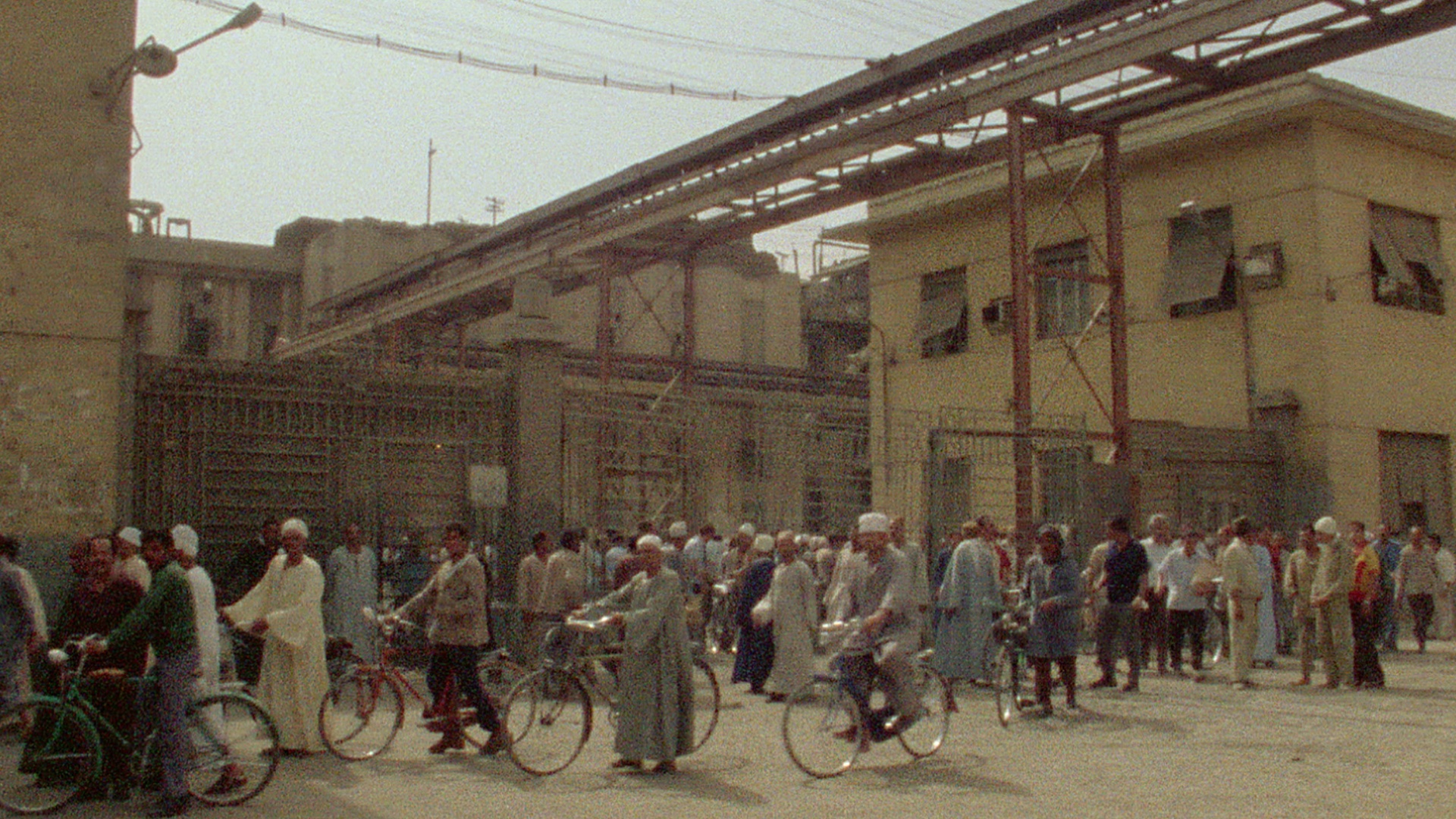
Danièle Huillet, Jean-Marie Straub · 100m · DCP
Too Early, Too Late is a groundbreaking work of “peasant cinema,” juxtaposing a letter by Friedrich Engels with an account of imprisoned Marxist intellectuals in Egypt. The film bridges 18th century France with a history of anti-colonial class struggle in the Middle East, revealing cinema as witness and mediator of an age-old struggle between past and present, proximity and distance, material and mystical.
Wednesday, April 30 7pm
Antigone (1992)
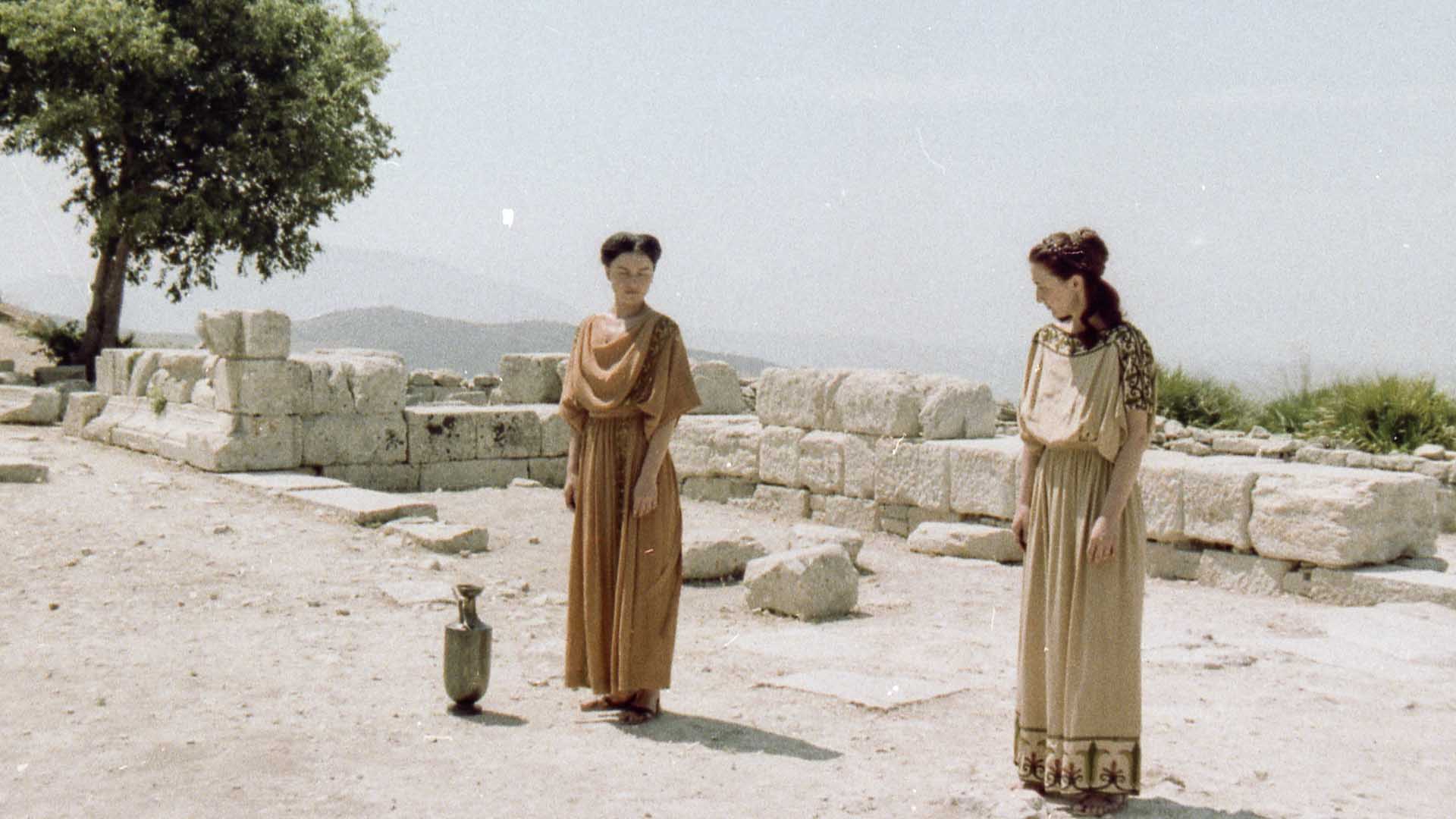
Danièle Huillet, Jean-Marie Straub · 100m · 35mm
Straub and Huillet adapt Brecht and Hölderlin in this thrilling rendition of the Antigone story. Following Antigone’s (Astrid Ofner) struggle to bury her dead brother against the will of the Thebian king, the myth becomes an ideal platform for Straub and Huillet to explore characteristic themes of resistance, spectacle, memory, and the interplay of bodies and spaces.
Wednesday, May 7 7pm
Sicilia! (1999)
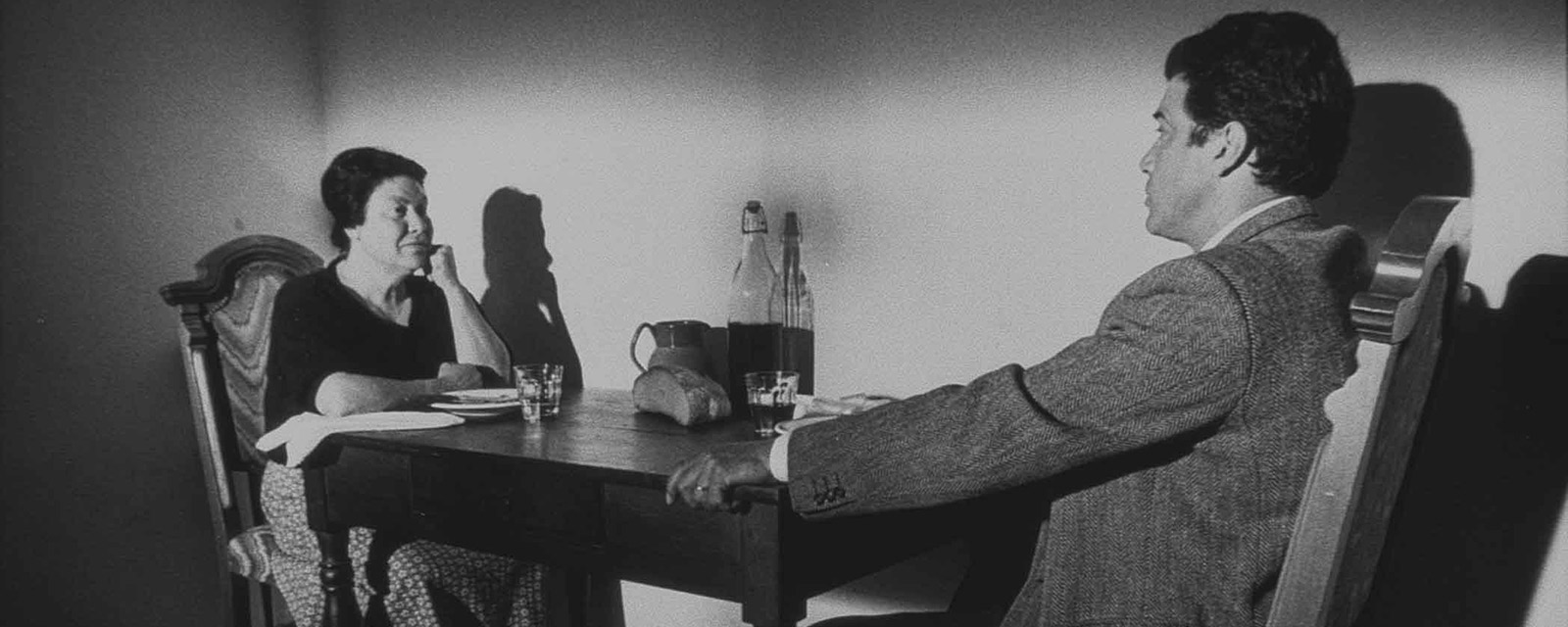
Danièle Huillet, Jean-Marie Straub · 66m · 35mm
Straub and Huillet are at their most poetic and poignant in Sicilia!, following a man (Gianni Buscarino) returning to his hometown in Sicily after over a decade in America. A lyrical exploration of landscape, time, and alienation, Sicilia! is, according to James Quandt, the solution to D.W. Griffith’s claim that “what the modern movie lacks is beauty — the beauty of moving wind in the trees.”
Wednesday, May 14 7:00 PM · Saturday, May 17 6:00
These Encounters of Theirs / Dialogue of Shadows (2006 / 2013)
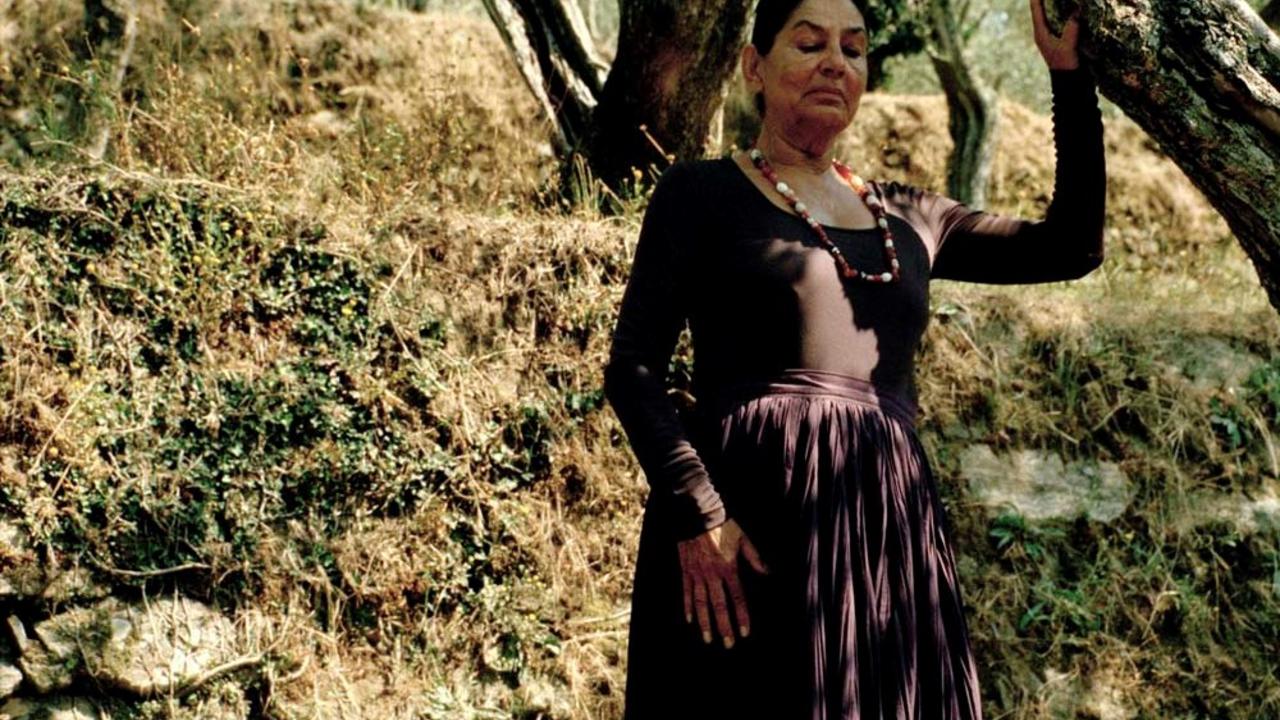
Danièle Huillet, Jean-Marie Straub · 68m / 28m · 35mm / DCP
For their final film together, Straub and Huillet gather villagers to recite Cesare Pavese’s Dialogues with Leucò in These Encounters of Theirs, a contemplative observation on death, light, and destiny. Dialogue of Shadows, the conversation between two people on grief, devotion, and the weight of love and history, is Straub’s love letter to Huillet after her death in 2006.






